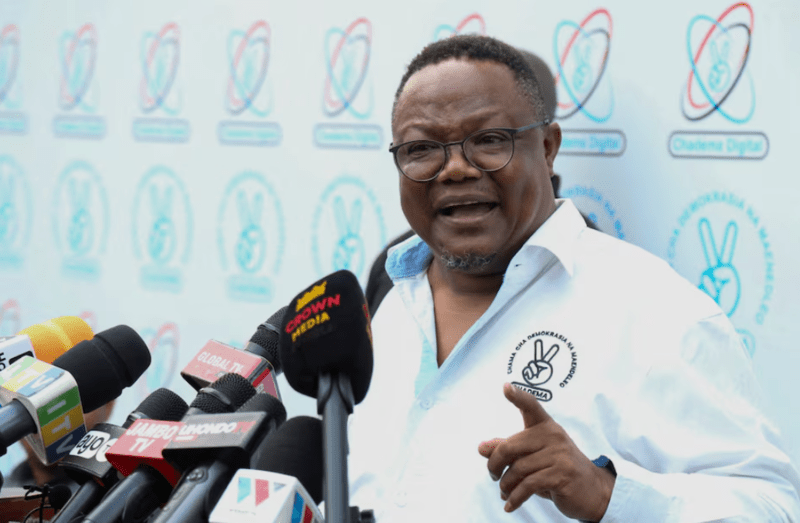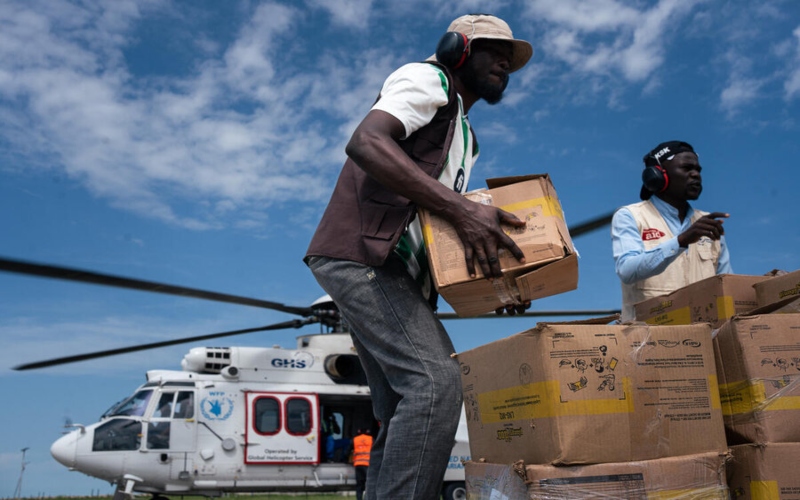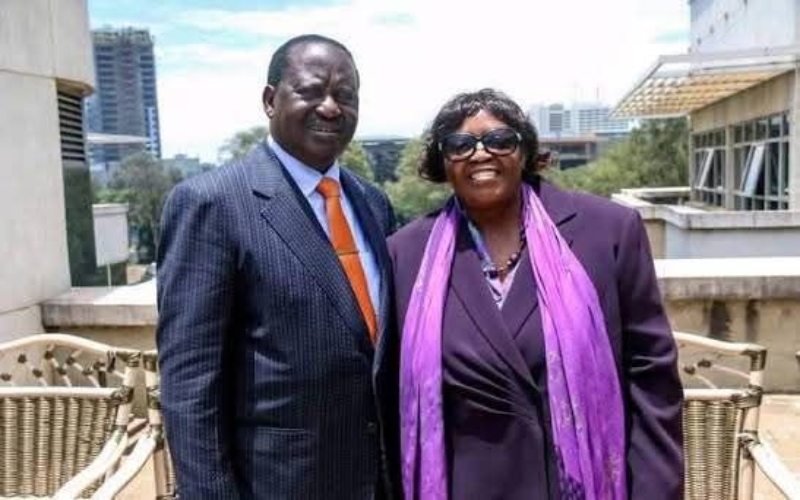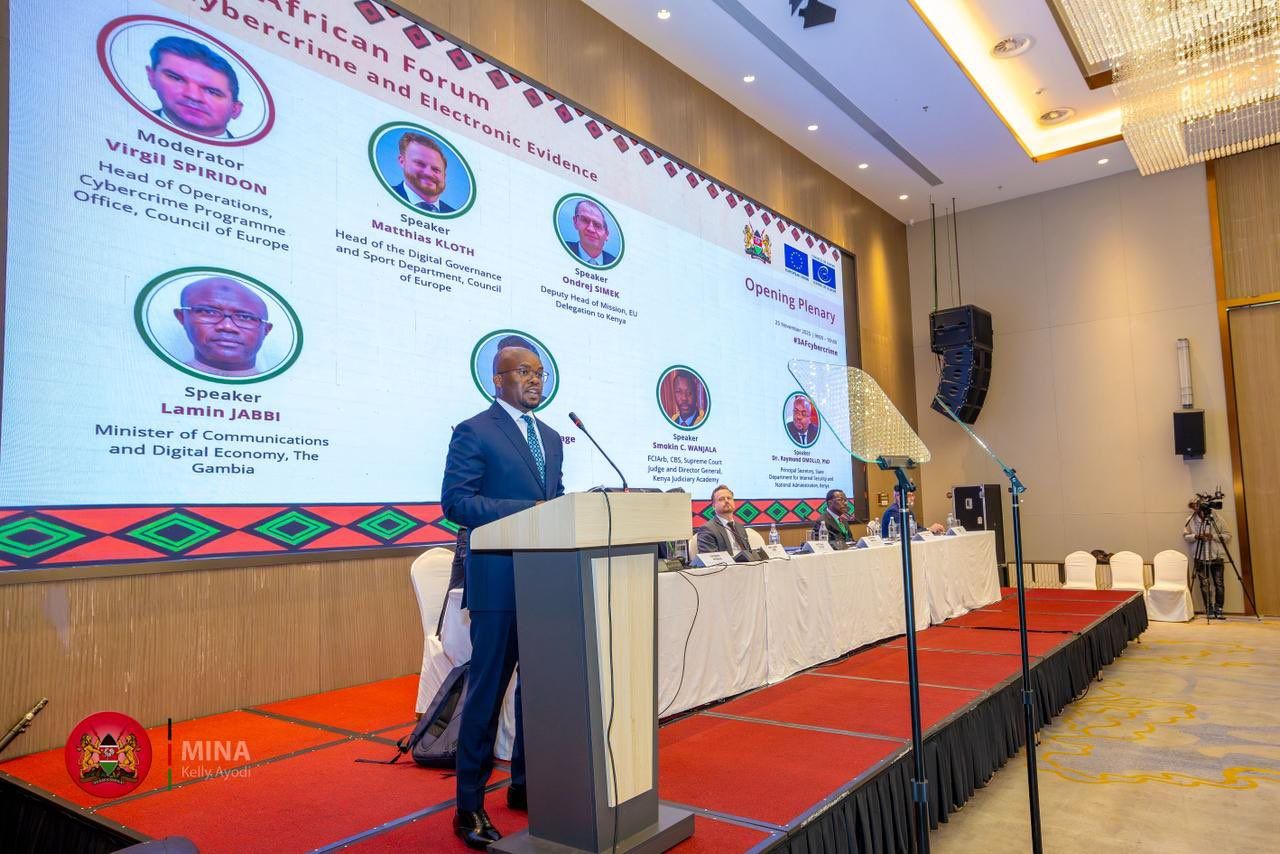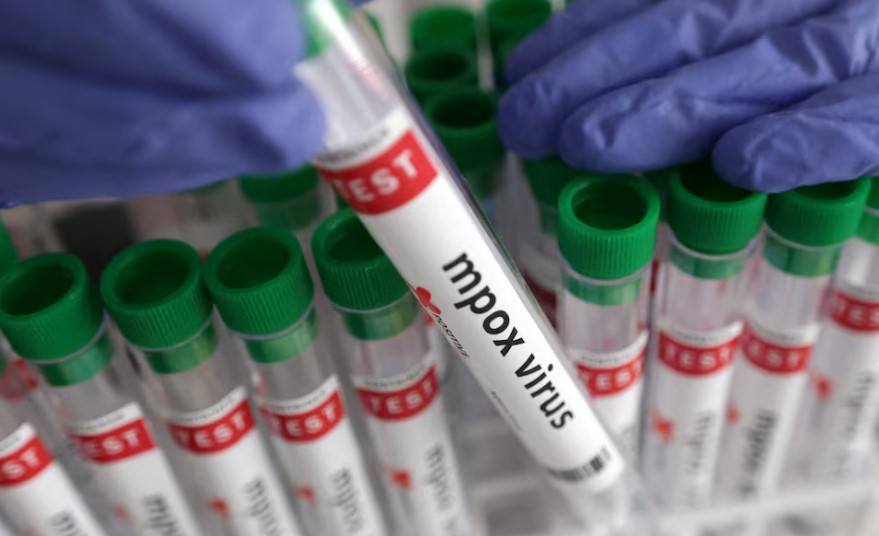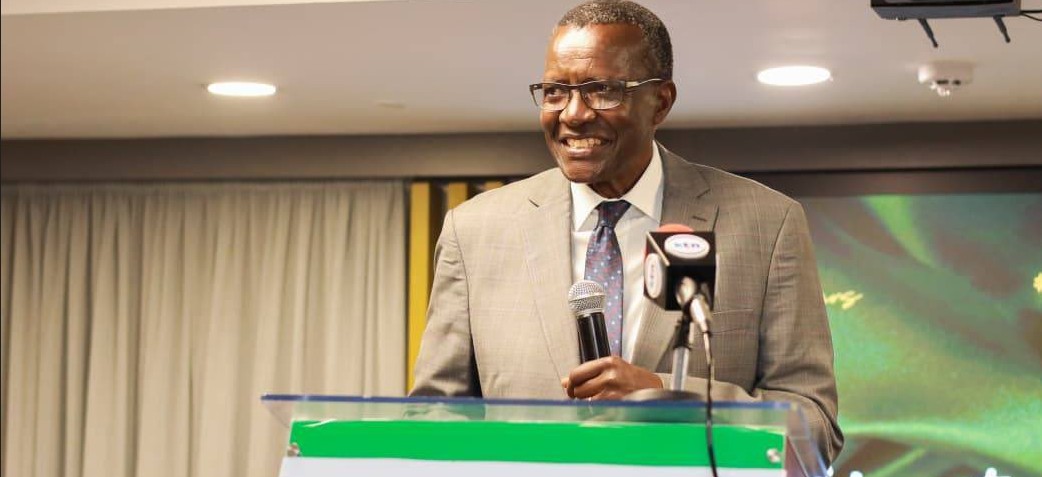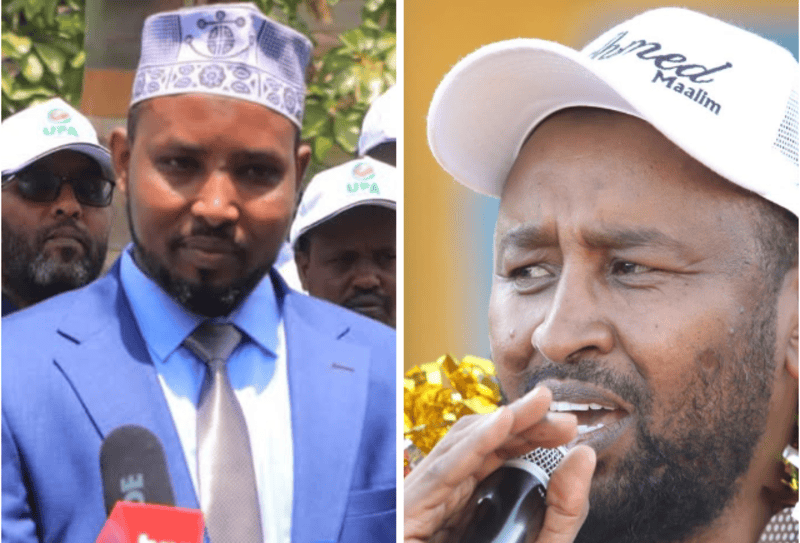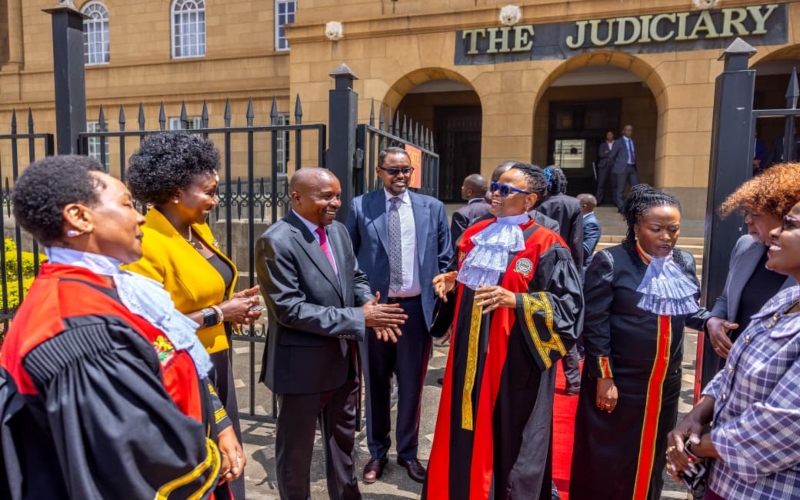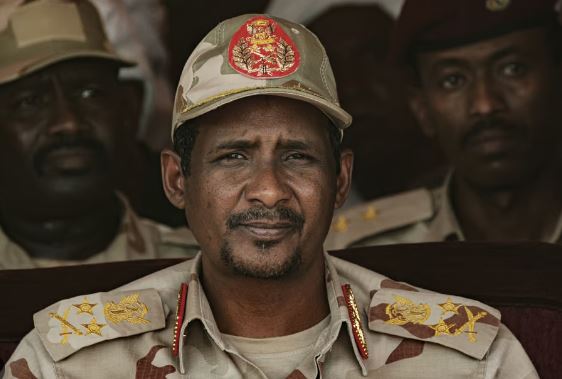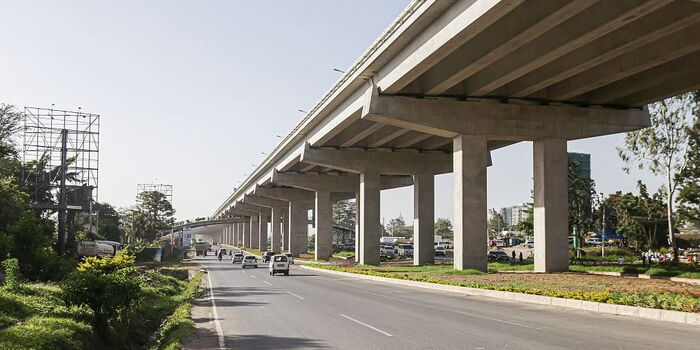IGAD rallies region to tackle deepening displacement crisis amid funding cuts, conflict
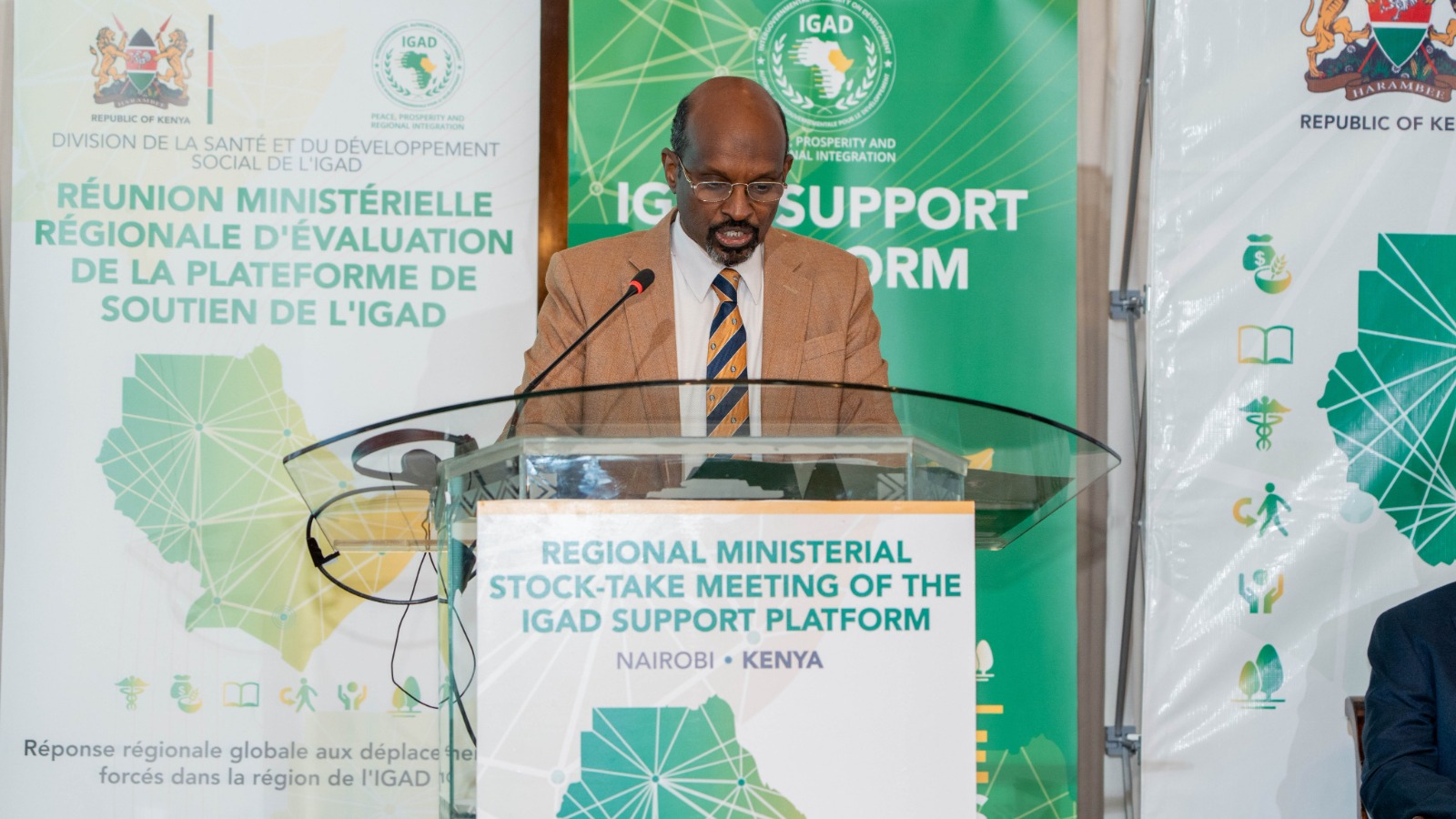
Technical experts are currently deliberating on specific gaps in protection, education and livelihoods, with their recommendations set to be endorsed by Ministers of Interior and Refugee Affairs on Thursday.
As conflict and climate shocks continue to uproot millions across the Horn of Africa, the Intergovernmental Authority on Development (IGAD) has convened a high-level ministerial meeting in Nairobi to chart a unified path forward.
The biennial Ministerial Stocktaking Meeting of the IGAD Support Platform on Forced Displacement, running to November 27, comes at a critical time for a region now hosting over 25 million displaced persons.
More To Read
- Daua Dam, irrigation masterplan gain momentum after high-level talks in Nairobi
- IGAD leads new push for Peace in Sudan as regional and global partners back three-step plan
- ONLF accuses Ethiopia of breaching 2018 peace deal as Somali Region tensions rise
- Ethiopia hosting COP32 a ‘win for the Horn of Africa’, IGAD says
- IGAD calls for joint action to protect livestock, pastoral livelihoods in Horn of Africa
- ICPAC issues urgent advisory following deadly landslides in Elgeyo Marakwet
Bringing together ministers, senior officials and international partners, the gathering aims to review the progress of the landmark Nairobi Declaration and set urgent priorities for a crisis that has intensified over the last two years.
Opening the technical sessions, Amb. Moussa Meigague, the IGAD Director for Health and Social Development, highlighted both the gains made and the challenging reality facing member states.
"IGAD Support Platform has made significant strides in addressing forced displacement across the region," said Amb. Meigague in his opening remarks.
"Our collaborative efforts have been instrumental in implementing the Nairobi Action Plan, as well as the subsequent thematic declarations and plans of action mainly on education, livelihood and self-reliance, and health."
However, the progress faces serious challenges. The war in Sudan has displaced over 10 million people, sending shockwaves across neighbouring countries, while repeated droughts, floods and other climate disasters continue to uproot more families.
"Despite these commendable efforts, challenges still persist and have intensified over the last two years," Amb. Meigague warned.
"The number of displaced populations in the region continues to rise. Currently, the IGAD region hosts over 25 million displaced persons, comprising over 19 million refugees and over 6 million IDPs."
Beyond the rising numbers, the meeting is addressing challenges in humanitarian aid. With global attention shifting and budgets shrinking, the usual support systems for refugees and host communities are starting to feel the strain.
"Across the globe, we are experiencing declining support for foreign assistance and humanitarian operations," Amb. Meigague noted.
"This sudden decision carries significant implications for the Horn of Africa. With millions already facing food insecurity, ongoing conflicts, and fragile healthcare systems, the aid suspension raises pressing concerns about how countries in the region will cope with the escalating crisis."
The situation has pushed IGAD to focus more on self-reliance and development-led approaches, a key part of its strategy since the 2017 Nairobi Declaration.
The approach aims to include refugees in national systems like healthcare and education, rather than keeping them in separate, aid-dependent camps. At the same time, as different actors try to fill gaps left by shrinking aid, coordination has become a challenge, according to Amb. Meigague.
"We have a number of ongoing initiatives, both at the regional and national levels. This poses challenges of coordination. Currently, we do not have a platform or a portal where we can see who does what and where," he said.
"We also cannot tell how much investment and support is coming into the region to support our member states... We therefore need to improve our mapping of investments and initiatives."
The stocktaking meeting is not just about reviewing past efforts but also planning for a more complex future. The agenda includes new priorities that go beyond traditional refugee protection, such as the effects of rapid urbanisation and the links between humanitarian, development, and peace efforts.
To match this broader focus, the IGAD Support Platform is also expanding its core group.
"We have also witnessed increased interest from a number of actors to join the core-group members of the IGAD Support Platform," said Amb. Meigague.
"We are happy to admit new members, including Cities Alliance and UN-Habitat, to the core-group."
The three-day event, which will culminate in a Ministerial Communique, is expected to reaffirm the region's commitment to the Global Compact on Refugees.
Technical experts are currently deliberating on specific gaps in protection, education and livelihoods, with their recommendations set to be endorsed by Ministers of Interior and Refugee Affairs on Thursday.
Top Stories Today
